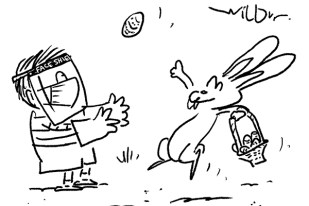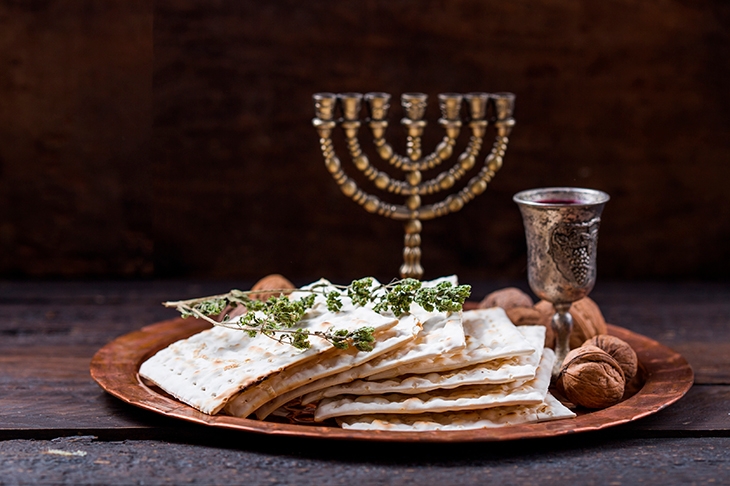This week my son came home from school and asked me if it was true that the Jews killed Jesus. Um, I said. Read the Gospels. Read Hyam Maccoby. Ask your father. My husband is a religious maniac, though Christian. Any patriarchy will do. He insists I pretend to be an ultra-Orthodox Jew for festivals, and finds recipes for weird ceremonial breads. ‘Can’t we make Judaism fun?’ he asks. I reply, aghast: ‘It isn’t supposed to be fun.’ My Judaism is rather Holocaust–centric. I told a family therapist after my parents’ divorce: ‘I lost a father and gained a Shoah.’
Then we buried my husband’s uncle David Watts — not the one in the Kinks song, though he would hint that it was, ignoring supplementary questions on why Ray Davies would write a song about a seed merchant — in a churchyard on a hill in sunlight on Exmoor. He was my most beloved Spectator reader, and the one I wrote restaurant reviews for, because he once weighed my son on agricultural scales, which I thought delightful, and though he was not at all mean, he was careful. He would open his mouth and copy-edited Spectator editorials would fall out. It was uncanny. He could charm his way across a picket line. This skill, revealed in the eulogy, divided the pews. Then we had Passover by Zoom with my family in Finchley.

The food is never a problem; or, rather, it always is, which amounts to the same thing. My grandmother would bake coconut pyramids and cinnamon balls for Passover — it was the only time she actually baked, but she liked to be singular — but I have forbidden my husband from baking Jewish-themed cakes because they aren’t very nice. (Understanding that a Victoria sponge is superior to a cinnamon ball is part of the reason Jews are such spectacularly successful immigrants. Some parts of a culture are not worth hanging on to; even in the face of annihilation. A cinnamon ball is one such example.)
I do not like Ashkenazi Jewish food unless it is chicken soup. (Chicken soup is really stock. Stop the lies, sheeple.) That is why Anglo-Jewish restaurants so often fail: the food is Slav cuisine without pork. What could be worse? Even Jews think this, which is why the most beloved restaurant in London Jewish circles is Oslo Court, specialists in seafood and cream cakes.
You can’t get a boiling chicken in west Cornwall, where chickens die in their beds, though I do buy a chop for the seder plate in the butcher’s in Penzance. (My husband suggests I dig up the dog’s lamb bone, but I can’t. I don’t know where it is.) You could do a near-perfect audit of the Jewish community in west Cornwall by counting how many people buy a single lamb chop in the butcher’s the day before Passover. I forget the ingredients of charoset in the grocer’s — apples, walnuts, honey — and have a small and noisy panic attack. Google it, says the owner, and I show her a photograph of a filled seder plate. That looks delicious, she says kindly. It doesn’t really. It is designed to look like mortar. Matzah is a bread we invented while running away. It’s called the bread of affliction, and frankly it tastes like it.
Matzah is a bread we invented while running away. It’s called the bread of affliction and it tastes like it
My brother-in-law leads the Zoom seder. My family look small and far-away. We eat the bread of affliction. It tastes nutty. My sister forgets my rule that we don’t allude to the Shoah in front of my son. She reads an account of a seder in a camp. My son thinks she means Beaver camp and asks if they do paintballing and archery. Then we eat spring lamb, roast potatoes and leeks. Next year in Jerusalem, please God, and if you can’t manage that, God, then Finchley.







Comments